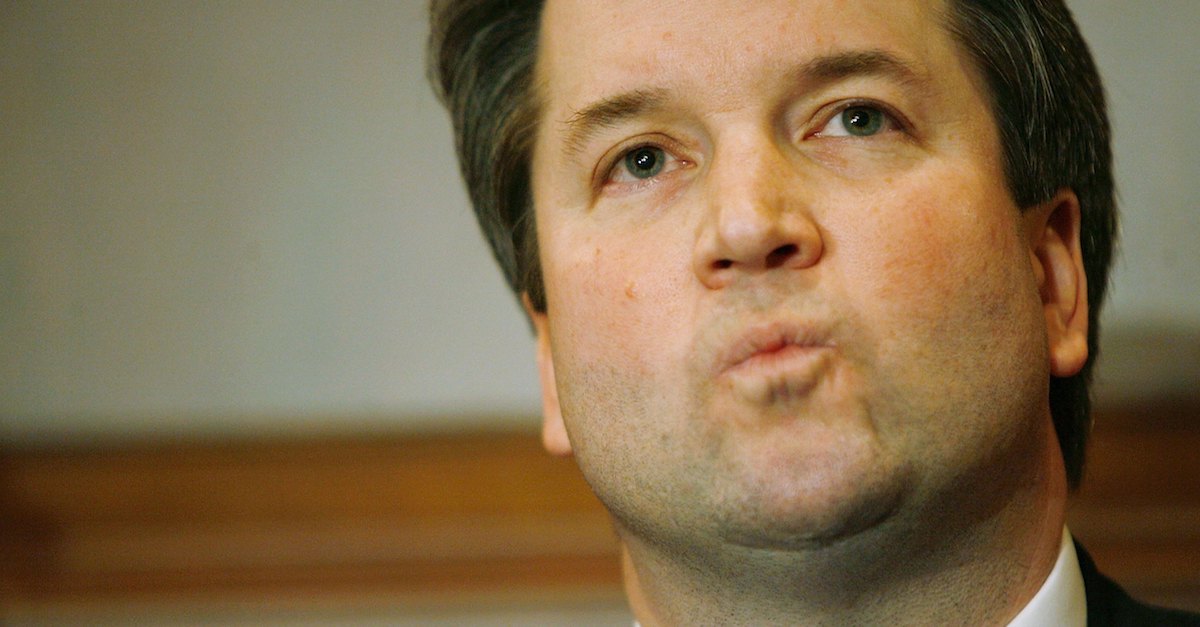
Judge Brett Kavanaugh‘s Supreme Court confirmation hearing is taking place this week, and there are several hot-button issues that are sure to come up, from abortion to whether a sitting president can be investigated for crimes. There is one major topic, however, that has gone relatively unnoticed, even though it’s been in the news quite a bit: campaign finance regulation.
Currently, there are maximum amounts that people are allowed to contribute to political campaigns. The landmark Citizens United case allowed organizations like SuperPACs to get around such limitations, but there are still regulations in place that prohibit them from coordinating with political campaigns. If Kavanaugh joins the Supreme Court, we could see a major shift that would open the floodgates for political donations that go straight to candidates.
Kavanaugh has stated in the past that he believes there are “serious First Amendment problems” with restricting how much money a person can give to a candidate, as Professor Rick Hasen pointed out in Slate. The argument here is that campaign contributions are a form of political speech. In recently released documents, Kavanaugh wrote of his concern with the status quo, which allows SuperPACs to throw money at ads attacking a candidate, while that candidate is “handcuffed in his/her ability to respond … because of the limits on contributions to his/her campaign.”
CNN Supreme Court analyst and University of Texas Law Professor Steve Vladeck noted the importance of this.
“Judge Kavanaugh’s views on campaign finance are already pretty well-known,” Vladeck said. “But these emails suggest that he’d go farther in striking down these regulations than the court has to date. It’s hard to imagine this not becoming a point of some contention at [Kavanaugh’s] confirmation hearing.”
The counter to Kavanaugh’s view is that allowing unlimited campaign contributions would allow wealthy individuals and organizations to throw vast sums of cash at candidates which would 1) decrease the influence of the average citizen, and 2) pose a greater risk for corruption (or at least the appearance of corruption), should a candidate be too closely tied to a donor or special interest group.
As Professor Hasen noted, this issue could very likely come up before the Supreme Court in the near future. Two cases are awaiting the Court’s decision on whether to hear them: Lair v. Motl and Zimmerman v. City of Austin. The Zimmerman case only deals with campaign contribution limits on the city level, and Motl deals with the degree of evidence a state has to produce to support a limit of campaign donations. These are narrower issues than federal campaign finance limits in general, but Hasen points out that they could set precedent which could be looked to in future cases.
Campaign contribution maximums have been of national import in recent weeks, as President Donald Trump‘s former attorney Michael Cohen recently pleaded guilty to being involved in violating the $2,700 limit with the $130,000 paid to Stormy Daniels in exchange for her silence regarding an affair she claims she had with Trump in the past. That payment was considered a contribution to Trump’s campaign because it was meant to suppress information that could have been damaging to the campaign. Without limits on contributions, Cohen would not have been charged with a crime for that payment.
[Image via Chip Somodevilla/Getty Images]